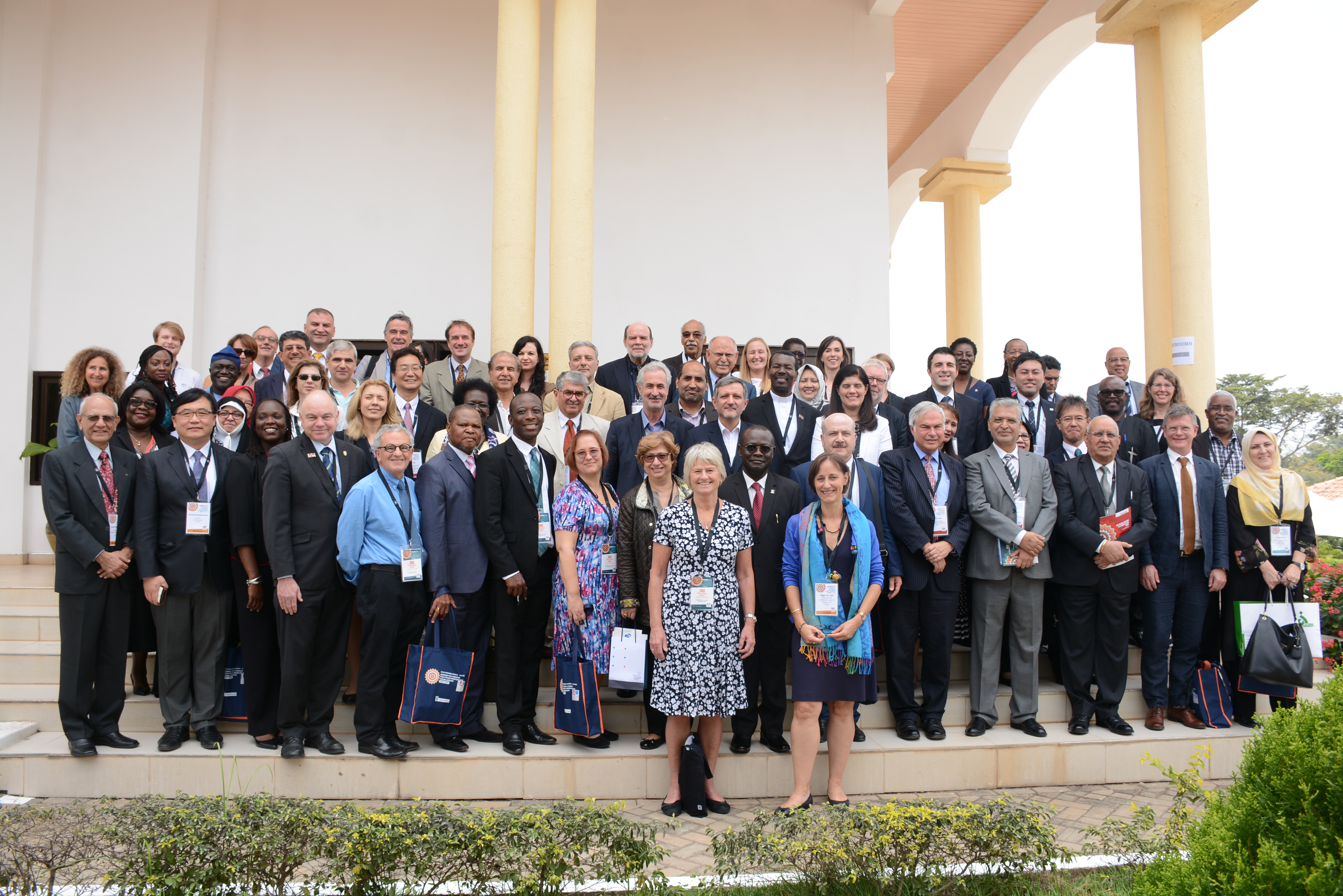| Global Meeting of Associations (17-18 October) |
About the GMA:
Format:
The GMA will start with a panel to frame the theme and discuss implications for higher education associations. The participants will then breakout into groups to debate and exchange views and experiences on a series of questions. At the end of the day any conclusions reached, contrasts and similarities found and trends uncovered will be highlighted and discussed in plenary.

But what about the impact this has on the national and regional university associations? How are they experiencing the changing nature of higher education that comes with a more blurred notion of public and private?
Global Meetings of Associations (GMA) are held every two years. They are organized exclusively for leaders of national, regional and international associations/organizations of higher education institutions. They offer a unique opportunity for these leaders to meet as a relatively small group of peers to exchange ideas, practices and to network.
Target audience:
The GMA is exclusively open to senior representatives from national, regional, sub regional and
international higher education associations, organisations and networks.
Format:
The GMA will start with a panel to frame the theme and discuss implications for higher education associations. The participants will then breakout into groups to debate and exchange views and experiences on a series of questions. At the end of the day any conclusions reached, contrasts and similarities found and trends uncovered will be highlighted and discussed in plenary.
IAU GMA 2017, Accra, Ghana.
Leadership for a changing public-private higher education funding landscape:
implications for higher education associations
The impacts and challenges that result from the shifting and often blurring lines between publicly and privately funded higher education and the pressure to change the funding mix are manifold. At the system level, these transitions raise questions of the very definition of what is a public or private university, questions about the regulatory and accountability frameworks that govern each of these categories of institutions, questions with regard to quality and recognition.
For students, the issues are about accessibility, participation, retention and also recognition. As well, this changing public – private landscape can influence the profile of individual institutions and the disciplinary mix or curricula they offer, what academic knowledge and skills they emphasize, the students they wish or are able to attract, the relationship they build with communities and potential employers.
But what about the impact this has on the national and regional university associations? How are they experiencing the changing nature of higher education that comes with a more blurred notion of public and private?
The Global Meeting of Association (GMA) seeks to provide a forum for examining the answers and additional questions from the perspective of membership associations and university networks.
| GMA Programme |
17 October 2017 (Venue: Hotel Fiesta Royale)
17:00 Registrations
18:00-20:00 Opening of the Global Meeting of Associations (GMA) and Welcome Reception
Opening keynote: Ernest Aryeetey, Secretary General, African Research Universities Alliance (ARUA) and Former IAU Board member (download presentation)
Words of welcome:
Pam Fredman, IAU President, Sweden
Pam Fredman, IAU President, Sweden
Etienne Ehilé, Secretary General of the Association of African Universities (AAU)
18 October 2017 (Venue: University of Ghana)
08:00-09:00 Coffee/tea and registrations
09:00-09:30 Introduction and welcome remarks
Hillgje van't Land, IAU Secretary General
GMA facilitator - Eva Egron-Polak, Former IAU Secretary General
09:30-10:45 Plenary panel
Changing public-private higher education funding landscape: what are the implications for associations?
Changing public-private higher education funding landscape: what are the implications for associations?
Chair: Eva Egron-Polak, Outgoing IAU Secretary General
Helge Schwitters, President, European Student Union (ESU), Belgium
(download presentation)
(download presentation)
Etienne Ehilé, Secretary General, Association of African Universities (AAU), Ghana
(download presentation)
(download presentation)
Michael Gaebel, Director of the higher education policy unit, European University Association (EUA), Belgium (download presentation)
Elaine Meyer-Lee, President of the Board of Directors, NAFSA, USA
Elaine Meyer-Lee, President of the Board of Directors, NAFSA, USA
11:00-12:30 Discussions in groups - Series I
Q.1 What membership trends do you see in terms of private or public higher education institutions?
Moderator:Irina Ferencz, Deputy Director, Academic Cooperation Association (ACA), Belgium
Q.2 Is the changing funding landscape bringing more risks such as corruption; unfettered competition and shift in values? What about new opportunities?
Moderator: Sijbolt Noorda, President, Magna Charta Observatory, Italy
Q.3 Public-private: same or different leadership capabilities required? Same or different services needed?
Moderator: Georges Malamoud, Conseiller stratégie du Recteur, Agence universitaire de la francophonie
Q.4 New funding realities: what is the impact on quality assurance, accreditation and on other regulatory mechanisms?
Moderator: Roberto Escalante, Secretary General, Association of Universities of Latin America and the Caribbean (UDUAL), Mexico
12:30-14:00 Lunch break and networking
14:00-15:30 Discussions in groups - Series II
Q.5 How does private HE funding of higher education impact on calls for social responsibility, how does it influence research choices?
Moderator: Sultan Abu-Orabi, Secretary General, Association of Arab Universities (AArU), Jordan
Q.6 What impact do increased competition, rankings and other ‘market’ forces have on your association?
Moderator: Furqan Qamar, Secretary-General, Association of Indian Universities, India
Q.7 Does the diversification of funding sources bring changes in the mission and purposes of higher education?
Moderator:Marita Hilliges, Secretary General, Association of Swedish Higher Education (SUHF), Sweden
Q.8 What are the expectations and the place of the student in this changing landscape?
Moderator:Fred Awaah, Director, Student Services of the Africa Regional Office of GUNi-Africa, Ghana
15:30-16:00 Coffee/tea break and networking
16:00-17:00 Report to plenary
GMA facilitator - Eva Egron-Polak, Former IAU Secretary General
GMA facilitator - Eva Egron-Polak, Former IAU Secretary General
Group moderators
17:00-17:30 Closing and harvesting topics for the next GMA
Hillgje van't Land, IAU Secretary General
Hillgje van't Land, IAU Secretary General
Pam Fredman, IAU President, Sweden
- - - - - - - - - - - - -
- - - - - - - - - - - - -
18:00 - 20:00 Inauguration of the IAU 2017 International Conference (click here for the Conference programme)



